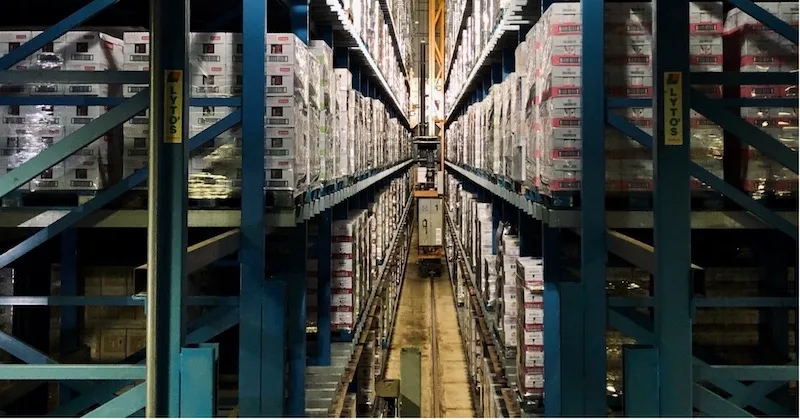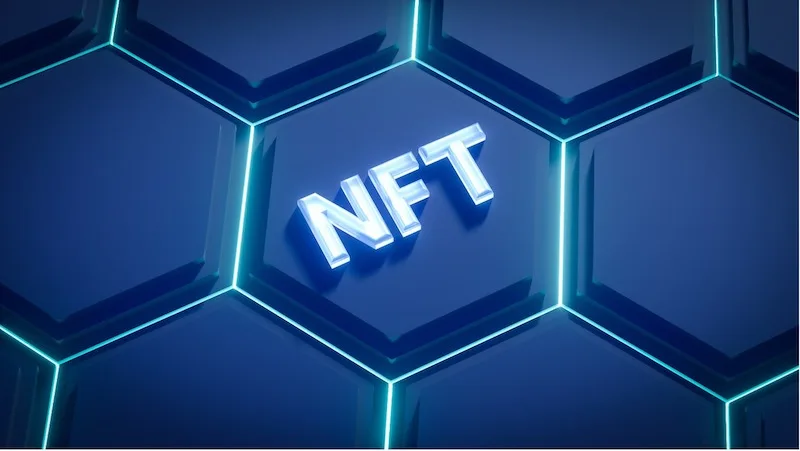The Adoption of Blockchain Technology in Supply Chain Management
Blockchain technology is changing the way businesses operate and manage their supply chains. By providing a secure and transparent ledger of transactions, blockchain has the potential to revolutionise supply chain management, improving efficiency, reducing costs, and increasing overall profitability. In this blog, we will explore the adoption of blockchain technology in supply chain management and how businesses can leverage this technology to achieve their supply chain goals.

What is blockchain?
Blockchain is a decentralised digital ledger technology that is used to securely and transparently record transactions. It was originally developed as the underlying technology for Bitcoin, the world’s first decentralised digital currency, but has since been applied to a wide range of industries. At its core, a blockchain is a continuously growing list of records, called blocks, which are linked and secured using cryptography. Each block contains a cryptographic hash of the previous block, a timestamp, and transaction data. This creates a secure and tamper-proof chain of blocks that can be used to record and track transactions of any kind.
The impacts of blockchain on supply chain management
The first way blockchain is impacting supply chain management is by improving transparency and traceability. By providing a secure and tamper-proof ledger of transactions, blockchain enables businesses to track the flow of goods and services from origin to destination. This improves visibility into supply chain operations reducing waste, and avoiding counterfeiting.
Another way blockchain is impacting supply chain management is by reducing the risk of errors and fraud. The transparency of blockchain transactions enables businesses to identify any discrepancies or fraudulent activities more quickly, allowing them to respond more quickly and effectively.

Blockchain is also having a significant impact on the logistics and transportation aspects of supply chain management. By providing a secure and transparent ledger of transactions, blockchain enables businesses to optimise their delivery routes, reduce transit times, and lower transportation costs. Additionally, blockchain-based smart contracts can automate routine and repetitive tasks, freeing up valuable time and resources that can be better spent on more strategic initiatives.
In addition, blockchain is enabling more effective risk management in supply chain management. With its secure and transparent ledger of transactions, blockchain enables businesses to identify and mitigate potential risks more quickly and effectively. For example, blockchain can be used to monitor supply chain operations in real-time, allowing businesses to respond quickly to potential disruptions, such as natural disasters or production outages.
The challenges blockchain may cause
Despite its many benefits, the adoption of blockchain technology in supply chain management is not without challenges. One of the biggest challenges businesses face is the need for standardisation and interoperability. With different blockchain platforms and protocols, there is a risk of fragmentation, which can limit the ability of businesses to share data and collaborate effectively.
Another challenge businesses face when adopting blockchain in supply chain management is the need for specialised skills and expertise. Blockchain technology is complex and requires these skills to develop, implement, and maintain blockchain initiatives. Businesses must ensure that they have the necessary skills and resources in-house or seek external support from experts in the field.
To develop specialised skills and expertise you would need to study a course in supply chain management. The Higher Certificate in Supply Chain Management qualification at IMM is a programme designed to provide students with a foundational understanding of the principles and practices of supply chain management. The programme is offered both on-campus and online and can be completed in one year of full-time study or two years of part-time study. The programme’s curriculum is designed to provide students with a broad understanding of supply chain management, including procurement, logistics, transportation, and inventory management. Students will also learn about the importance of effective supply chain management in a business context and how it can impact the overall success of a company.

The bottom line
Blockchain technology is having a profound impact on the way businesses manage their supply chains. With its ability to improve transparency and traceability, reduce the risk of errors and fraud, optimise logistics and transportation, as well as enable more effective risk management, blockchain is a powerful tool for businesses looking to improve their supply chain operations. However, businesses must be mindful of the need for standardisation and interoperability, the need for specialised skills and expertise, and the importance of data security and privacy when adopting blockchain technology in their supply chain management.
